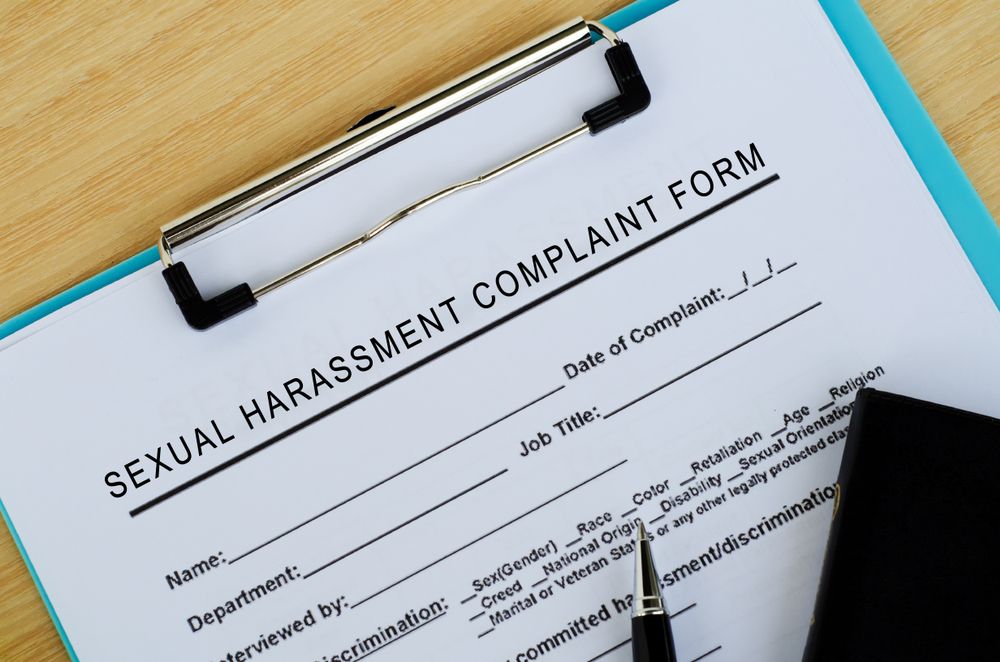How To Stop Sexual Harassment At Work
Sexual harassment victims are often unsure how to stop the abuse, especially when sexual harassment occurs at work. Many North Dallas workers continue to suffer the consequences of workplace sexual harassment from coworkers, managers, customers or other individuals in silence. Under Texas employment laws, sexual harassment is a form of gender discrimination and is illegal. Although every situation is different, we provide this information about what makes sexual harassment at work illegal. Our sexual harassment lawyer in Allen, TX, also provides steps to take to stop inappropriate sexual harassment behaviors as well as explains what rights victims have to take legal action.
Get the Help You Need
Dallas sexual harassment attorney Dan A. Atkerson is available to offer legal advice specific to your situation. He can evaluate whether seeking damages in a sexual harassment lawsuit is your best option. With over 38 years of legal experience practicing employment law in Collin County, harassment attorney Dan A. Atkerson is ready to help you handle this unfair and damaging situation.
"Dan Atkerson always kept me informed on how my case was going and sent me all communication with the other parties. I did not think a lawyer would even take my case, but he did. My case was settled in a timely manner and I am very pleased with the outcome considering the reason.
I feel like I have some peace now and hopefully this will not happen to anyone else at the place of employment in question. Thank you Mr. Dan A. Atkerson!!" SK
Understanding the Types of Workplace Sexual Harassment
Sexual harassment in the workplace typically takes two forms: hostile work environment and quid pro quo harassment.
Hostile Work Environment
In a hostile work environment, an employee has to deal with comments of a sexually suggestive nature or outright unwanted advancements. In most cases, victims of sexual harassment in the workplace feel they cannot speak up because they fear workplace retaliation. This can create a hostile work environment for both men and women who are victims.
Quid Pro Quo Harassment
Quid pro quo harassment is similar. In a quid pro quo matter, the harasser makes it clear that success in the workplace, such as receiving raises and promotions, depends on your acceptance of sexual advancements.
When a Joke Goes Too Far
Not all comments that are upsetting qualify as sexual harassment. However, teasing, informal comments and one-time incidents that become frequent and severe enough to create a hostile work environment could be sexual harassment. Get the legal help you need to determine if what you are experiencing is sexual harassment. If it is, then we can discuss actions to take in a court of law.

Steps You Can Take to Address Harassment
The following are some possible steps to take when facing sexual harassment in the workplace:
- Tell the harasser that the sexual harassment behavior is unacceptable and must end.
Tell the perpetrator in a clear and direct manner to stop the unwanted conduct. This is not always easy, but it will be extremely beneficial to you if you have to pursue legal action. Otherwise, the perpetrator may attempt to claim ignorance, say that it was “just a joke” or that you were a willing participant. Follow up any spoken communication with a written letter or email reiterating your point. Then, keep all documentation and correspondence to give to your attorney, if needed. - Inform your supervisor and human resources.
If telling the perpetrator directly to stop does not put an end to the sexual harassment in the workplace, then you must file a formal complaint with your immediate supervisor and/or the human resources (HR) department at work. If the perpetrator is your immediate supervisor, then report to the next higher-up. Immediately follow up on any conversations with a supervisor or HR personnel by writing a letter or email reiterating exactly what was said and make sure to keep copies. If you experience any workplace retaliation for filing a sexual harassment complaint with your supervisor or HR, then create a record of these instances. If you experience wrongful termination, contact an Allen employment lawyer for legal advice. - Speak with other employees about the sexual harassment.
It is often beneficial for victims to speak with other employees about sexual harassment in the workplace. If others have similar experiences with quid pro quo harassment and voice their complaints, then this may cause the company to wake up and take action. If the company still does nothing in light of multiple incidents, then this will establish a pattern of complicity that can assist a future hostile work environment or gender discrimination complaint. - File an EEOC Complaint.
To have an actionable federal claim of employment discrimination, you must first file a formal complaint with the U.S. Equal Employment Opportunity Commission (EEOC). The EEOC enforces Title VII of the Civil Rights Act of 1964. It will investigate your claim of sexual harassment and then decide whether to prosecute the action.
The EEOC only prosecutes a small number of workplace discrimination and sexual harassment claims. However, it also issues “right-to-sue” letters if the agency declines to take further action. You must have a right-to-sue letter to file a federal sexual harassment lawsuit represented by a private lawyer for employment law claims.
We Believe You
When sexual harassment occurs at work, it can be difficult to know whether to step forward. If you believe you have been harassed or are experiencing the negative effects of a hostile work environment, Dan Atkerson and his team at our labor attorney office in Allen, TX, can help. Contact our firm online or call (214) 383-3606 to get the legal support you need today.



